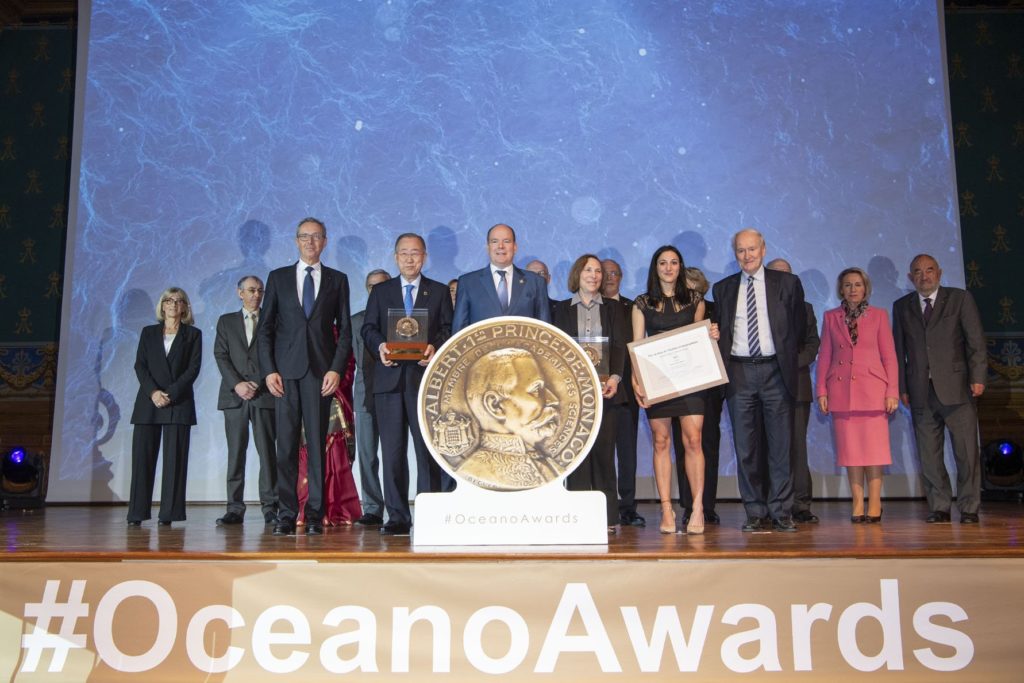Former United Nations Secretary-General Ban Ki-moon and Lisa Ann Levin received the Albert I Grand Medals, recognizing their commitment to climate change.
Since their creation in 1948, they have honoured 77 scientific leaders or personalities involved in civic causes.
This Thursday morning, the Albert I Grand Medals Award Ceremony was held at the Oceanographic Museum, orchestrated by the Institute of Oceanography.
In recent years, medals have been awarded to those who are committed to the preservation of the oceans.
“We have left the time of uncertainty despite the curtains of smoke that some people deploy,” Prince Albert II said in a speech calling for international political ambition to make progress on action on climate change. A cause that once again connects the recipients of the 2019 promotion.
First, former United Nations Secretary-General Ban Ki-moon, who initiated the creation of the objective of sustainable development on the ocean, received the Grand Medal, Mediation Section.
“THE OCEANS ARE A BEATING HEART”
A “very significant honour” for the South Korean who recalled that “Prince Albert I was a leader and pioneer, who drew great attention to the preservation of the environment, with a vision he had 100 years ago”.
He added that, in turn, with his duties at the United Nations, he had “sought to promote the spirit of citizenship”.
In particular through its actions in favour of the oceans. “They are a fundamental element that regulates our climate. They are the beating heart of our planet, of our future.”
The second winner for the Science section, American Lisa Ann Levin, Chief Scientist of 45 oceanographic expeditions around the world and co-founder of the Deep Ocean Stewardship Initiative. She sees this award as “a wonderful recognition for the deep sea”.
Professor Levin is studying the impact of climate change on deep-sea aquatic organisms and has highlighted the impact of human activity on these environments.
This Thursday, the Oceanographic Institute also praised the work of Violaine Pellichero, who was awarded a trophy and €3,000 endowment for her thesis. The young French oceanographer, who specialized in understanding climate change through the lens of the role of the oceans, developed a study in the Southern Ocean, under sea ice, to study water quality.
“CHERISH THE LINK BETWEEN SCIENCE AND THE COMPANY”
The ceremony, which brought together 400 people in the conference room of the Oceanographic Museum, was also a good opportunity to convey messages.
“Science needs to connect decision-makers and the general public,” said Robert Calcagno, the site director, in opening the ceremony.
A philosophy shared with Philippe Taquet, Chairman of the Board of Directors of the Institute of Oceanography, in an interesting speech.
“We must cherish the link between science and society. When I hear the opposition of common sense and the scientific approach that some people are advocating, it worries me. Science and society must be reconnected. And the scientific community has a vital role to play in strengthening this work.”
“It is a challenge to shed light on real information and to fight against fake news when I hear that the planet Earth was only 4,000 years old or that man and dinosaur coexisted.”
A heresy for the palaeontologist who has clearly shown this willingness to give science the means to infuse the world. For social issues in general, and climate challenges in particular.













